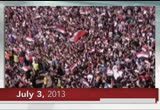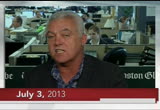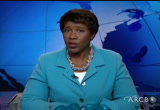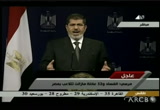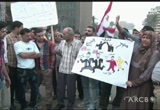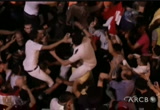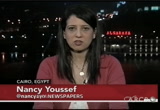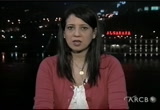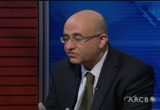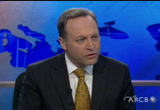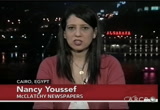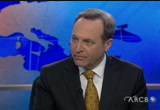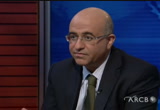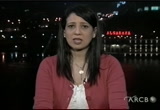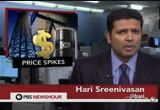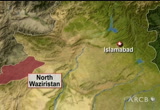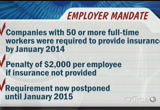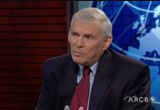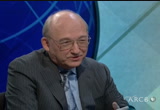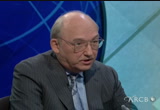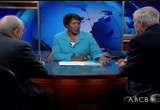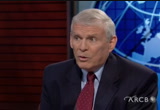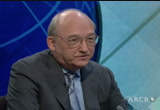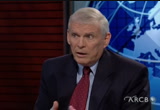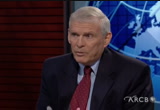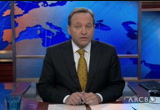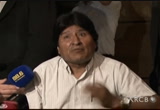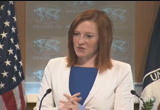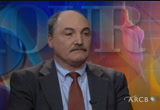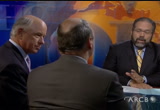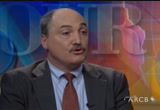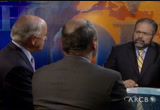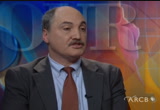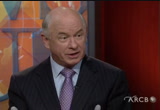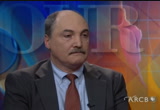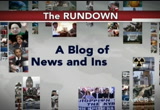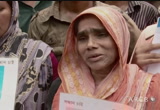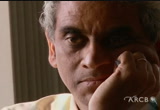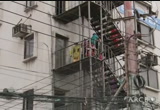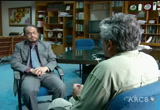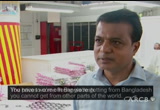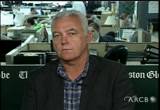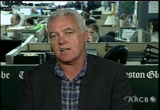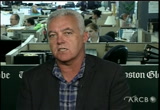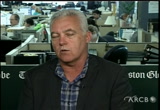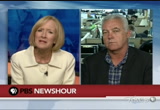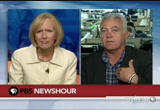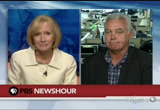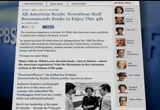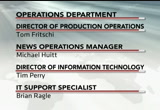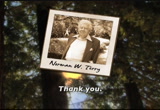tv PBS News Hour PBS July 3, 2013 5:30pm-6:31pm PDT
5:30 pm
captioning sponsored by macneil/lehrer productions >> ifill: crowds jammed tahrir square and fireworks erupted over the city tonight, as the egyptian military ousted president mohammed morsi. good evening, i'm gwen ifill. >> brown: and i'm jeffrey brown. on the "newshour" tonight, we get the latest on the dramatic developments, including the appointment of an interim leader and suspension of the country's constitution. >> ifill: then, the obama administration gives employers a
5:31 pm
one-year reprieve on the mandate to provide health insurance. we ask what the delay means for businesses and workers. >> brown: ray suarez examines the diplomatic saga unfolding as the world wonders where edward snowden is and what his fate will be. >> ifill: fred de sam lazaro reports on one group's efforts to help victims of the deadly factory collapse in bangladesh. >> every business that we have gone into has something to do with poor peoples' needs. we are looking at opportunities we need to do something very quickly, otherwise bangladesh might lose a lot of business. >> brown: and judy woodruff gets an inside-the-courtroom account of the trial of whitey bulger, the accused boston mob boss charged with racketeering and murder. >> >> ifill: that's all ahead on tonight's "newshour." >> major funding for the pbs newshour has been provided by:
5:32 pm
>> ifill: egypt's first democratically elected leader has been overthrown by the country's armed forces. president mohammed morsi has reportedly been moved to an undisclosed location. morsi's twitter account quotes him saying he rejects what he called a "full coup." margaret warner begins our coverage.
5:33 pm
>> reporter: cheers erupted from hundreds of thousands celebrating in tahrir square, as the commander of egypt's army announced president mohamed morsi was no longer in power. >> ( translated ): the chief justice of the constitutional court will declare before the court the early president election, where the justice of the constitutional court will run the state's affairs unit in the interim period, until the new president is elected. >> reporter: he also said the state's islamic-backed constitution would be suspended pending review. it all happened after a tension filled 24-hours, as a military- imposed deadline neared for president morsi to respond to the demands of the people in the streets. in a defiant speech to the nation last night, morsi vehemently defended his position as the elected leader of the country. >> ( translated ): we now have a reference, we now have legitimacy with our own will; an elected president, a
5:34 pm
constitution voted by the people and we are working according to this legitimacy. this legitimacy is the only >> reporter: when morning came, egyptians awoke to reports that the military had taken over the "al ahram" newspaper. and armored vehicles surrounded the state television headquarters, as officers were stationed in corridors and the main newsroom. minutes before the military deadline passed, morsi's office did release a statement backing a coalition government as a means to resolve the conflict. but the last ditch effort was largely ignored by opposition political, religious, and youth leaders, who met instead with the military chiefs to plan a way forward. and security officials reportedly imposed travel bans on morsi and his top allies. liberal opposition leader mohamed elbaradei said that the
5:35 pm
arab spring-inspired revolution of 2011 had been relaunched by today's announcement of an army- sponsored roadmap. in his announcement tonight the commander of egypt's army said it's time to bring the country together. >> ( translated ): the egyptian armored forces appeal to the egyptian people with all its spectrum to maintain peaceful demonstration, steer away from violence, which will bring about further tension and shedding the blood of the innocent. and the armed forces warned that it will stand up firmly in corporation with the interior ministry security personnel firmly and strictly to any act deviating from peacefulness under the rule of law, based on its patriotic and historic responsibility. >> reporter: large crowds remain on the streets of cairo, as egyptian troops have been deployed around the city in case of violence. >> president obama said in a
5:36 pm
statement this evening that the u.s. is deeply concerned by the decision to remove morsi, and he called on the egyptian military to move quickly to return full authority to a democratically elected civilian government. >> brown: this evening: the state department started ordering non-essential diplomats and their families to leave egypt. joining us again from cairo tonight is nancy youssef of "mcclatchy" newspapers. and here with me: michelle dunne, director of the atlantic council center for the middle east. and samer shehata, associate professor of international studies at the university of oklahoma. well, nancy youssef, let me start with you. what was the mood in the streets after this announcement? >> well, for the most part it was quite euphoric and you can hear it behind me right now. hundreds of thousands if not millions nationwide have taken to the streets to celebrate this intervention by the military which is the last remaining
5:37 pm
nationalist institution here. but in the smaller pockets where morsi supporters gathered they rained gun fire down in anger. they talked about jihad. they talked about being prepared to die for this, that this is about defending their faith as much as it was about defending morsi. but overwhelmingly there's joyful celebrations happening as we speak right now. >> brown: nancy, is there anything more known about the whereabouts of morsi himself? >> no, we haven't heard anything. we saw a couple statements allegedly by him on facebook calling this a military coup, his aides say he's been moved to an undisclosed location but we don't know where that is. we don't know whether he'll be arrested. there are rumors of that right now, one of many rumors spreading through egypt right now. the other thing we don't know about is where the senior aides of the muslim brotherhood are and what their state. is there was a report earlier today that they had been forbidden from traveling out of egypt. we'll see what happens tomorrow if there's any arrest or action
5:38 pm
by the military or by the police forces on the brotherhood. >> brown: samer shehata, a coup but one with popular support. what are we seeing snowed >> i think clearly the "coup" has to be modified. there was a debate among analysts whether what happened in 2011 against mubarak was a revolution or whether it was an uprising because the military got rid of mubarak but were still in power. i think there is a legitimate debate about whether this was coup, certainly not in the classic sense of a few military officers taking out another leader. there were millions of people out on the streets since june 30 and i think that's really the key point here. that is that an unprecedented -- in unprecedented numbers they went out and withdrew their support and withdrew the legitimacy of mohamed morsi. this isn't an ideal situation, but nevertheless it's not simply a coup. >> brown: michelle dunne, should we see it as predominantly a
5:39 pm
sentiment against mors any pro- military? how divided a country this at the moment? >> there is this polarization between islamists and non- islamists and there are also elements of the old state that have been active here. not only the military but the police and the state media and so forth. i think what we saw happen was that a lot of the elements of the old system were willing to work with the brotherhood and give morsi a chance but they felt that he failed. he failed to govern the country. he failed to stabilize the situation, to start moving the economy in the right direction and so they started withdrawing their support from him. the parts of the state, that is. and that aligned themselves with the secular opposition and finally the military was the final piece. >> brown: samer shehata, what's your sense of the military right now? how does it see itself? what's it role? what will be its next step? >> this is another amazing part of this story, right?
5:40 pm
a year ago there was widespread dissatisfaction with the military. remember the supreme council of the armed forces were in charge of the country from the time mubarak was ousted until mr. morsi was elected and they did an abysmal job and they killed protesters and they didn't want to give up power. now i think thanks to mr. morsi and the abysmal rule of his cohorts in the brotherhood, the military's stock value has risen significantly. so they are seen as the saviors of the country. we'll see how long that lasts, of course. that's likely to change. >> brown: nancy youssef, come in on that question, the role of the military. what are they saying right now and what are people saying about it and what the expectations are >> well, it's a very complicated and i dare say fickle relationship as egyptians have with the military. it's mentioned as egypt's only national organization that represents every segment of society.
5:41 pm
right now there's overwhelmingly euphoria that the military stepped in and broke this little impasse which has defined the morsi presidency almost from the minute he took office 368 days ago. that said, the 2011 uprising that led to the fall of former egyptian president hosni mubarak was in part about removing the military's grip on the country. yes, there had been civilian presidents for the past six decades but the military was a very key player in the governance of this country. so the idea that people who two years ago were calling for the military to be pushed aside are now celebrating that they've intervened to usurp by all measures a legitimate election is stunning in a way. >> brown: what's your sense, michelle dunne, about whether the military will hand back power, hold on to power? >> in terms of the relationship with the people with the military i think it helped that the defense minister and the chief of staff were changed. morsi changed them last august.
5:42 pm
so it's not the same people who ruled the country for 18 months so unpopularly, as samer said. when you speak to egyptians they say "oh, no, the military learned its lesson, it won't try to hold on to control this time." i don't know. what they did do this time is put a civilian figure head out front from the start which is the head of the supreme constitutional court. but he's not a well-known or powerful figure. they've also said they'll put a technocratic cabinet in place which suggests not a powerful prime minister. so this is going to be military rule until there are new elections. >> brown: samer, what about the issue for the u.s. at this moment? or the quandary? there's already talk about reviewing the aid that goes to egypt, for example. >> well, i think that kind of language is going to come from congress and not come from either the state department or the white house. i don't think any of those officials are going to use the
5:43 pm
word coup, for example, because they clearly want to maintain the relationship with the military and i don't think-- and i think this is correct-- they don't want to come out against 14, 16, 18 million people demonstrating on the streets against what was a failed presidency. >> brown: what do you see as the american quandary, michelle dunne. >> i think it's the quandary samer says. i think united states have an opportunity now to try to press for a much more inclusive transition and, for example, that they should set the rules of the game before they hold new elections. they made the mistake of holding both parliamentary and presidential elections before they had a new constitution. that caused huge problems. so i think the united states can try now to press for a more democratic transition if the united states wants to but they may continue to play a very minimal role and say let's just keep our relationship with the military and stay out of this. >> brown: nancy youssef, you started by telling us we could hear people in the background still very late at night. is the expectation that people stay in the streets? is there a real fear of
5:44 pm
potential violence in the hours and days ahead? >> yes, we saw that in that there were military tanks and soldiers stationed all around the pro-morsi supporters in the runup to this announcement. there are military helicopters flying overhead now. there's an effort to secure the situation before the announcement started and we've already heard of reports of violence in other provinces outside of cairo. i personally saw clashes today between pro and anti-morsi camps. there is a sense of tension and the language that's being used by morsi supporters is worrisome. remember that morsi yesterday gave a speech in which he said he was willing to sacrifice his blood for the this job, for legitimacy, as he put it. many supporters took that as a call for them to be prepared to die for this mission. that is protecting the morsi presidency. so we'll see if they step up tomorrow. the things that we've observed
5:45 pm
in the last few days is that the once intimidating protests mounted by the muslim brotherhood have been quite small compared to the anti-morsi demonstrations which speaks to the weakness when they have to confront opposition throughout the country and can't bus people in to various protests in the capital or alexandria. >> brown: nancy use they have? cairo, samer shehata and michelle dunne here in washington. thanks so much. >> ifill: still to come on the newshour, the delay on mandatory health care coverage. the diplomatic drama the diplomatic drama over edward snowden; efforts to improve conditions in bangladesh factories and the murder trial of a mob boss. but first, with the other news of the day. here's hari sreenivasan. >> sreenivasan: the price of oil spiked today, as egypt's changing political situation unfolded. for the first time in over a year the cost of a barrel passed the $102 mark. it ended the day in new york
5:46 pm
trading up more than a dollar and a half to close above $101. oil markets weren't the only ones in turmoil-- european financial markets were jolted by a deepening political crisis in portugal. prime minister pedro passos coelho refused to step down even though two top ministers resigned this week in protest of new austerity measures. coelho told reporters in berlin he was hopeful his center-right coalition government would be able to find a solution to avoid collapse. >> ( translated ): i will not resign because i don't have any reason to resign. i don't see an important reason to lose majority in the parliament, because there is no big issue in political terms justifying a fall of the government. >> sreenivasan: the crisis could also jeopardize portugal's international bailout at a time when the country is suffering its worst recession since the 1970s with 18% unemployment.
5:47 pm
the financial turmoil in europe and the crisis in egypt were not enough to dampen stocks on wall street. they climbed higher, in a shortened day of trading, on encouraging news about the american job market. the dow jones industrial average gained 56 points to close above 14,988. the nasdaq rose ten points to close above 3,443. france called today for a two- week suspension of free trade talks between the u.s. and the european union. it ordered the temporary delay in the wake of recent claims the u.s. spied on its european allies' offices. so far, the e.u. commission has yet to agree to postpone the trade negotiations scheduled to begin monday in washington. in pakistan, at least 16 suspected militants died in a pre-dawn u.s. drone strike today, according to pakistani intelligence officials. the raid happened in the north waziristan tribal region. it was believed to target members of the haqqani network from neighboring afghanistan. the pakistani government denounced the attack as a violation of its sovereignty. the first decade of this millenium saw record high temperatures around the world
5:48 pm
and a faster warming trend. the report from the u.n.'s world meteorological organization found every year of the past decade, except 2008, was among the ten warmest since records started in the 1850s. climate experts also found the decade was unprecedented in its extremes: heat waves in europe and russia, droughts in the amazon basin and several huge hurricanes. those are some of the day's major stories. now, back to gwen. >> ifill: we look at the fallout from the obama administration's decision to delay an insurance mandate for employers. under the health reform law, companies with 50 or more full- time workers were required to provide coverage for employees beginning next january or pay a penalty of $2,000 per employee. but the administration surprised many yesterday when it said it will postpone that requirement until 2015. other major parts of the law-- such as an individual mandate and new subsidized insurance exchanges-- will still take effect as scheduled.
5:49 pm
employers praised the decision, but republicans said the delay was a sign of underlying weakness. house speaker john boehner said "it means even the obama administration knows the train wreck will only get worse." two views now: ron pollack is with families usa, which backs the law and is working to increase enrollment. and tom miller of the american enterprise institute. he's the co-author of the book "why obamacare is wrong for america." welcome to both of you. ron pollack what is your sense of the reason of this new delay? >> i think it's largely employers were complaining about the paperwork and the administration responded to that. but i have to say, gwen this is much ado about fairly little in the following sense. as you accurately indicated this mandate only applies to large businesses. those that have more than 50 workers. and if you take a look at the businesses that have more than 50 workers more than 94% of them already provide health care
5:50 pm
coverage. it's about 6%, a little less than 6% that don't provide this coverage. the question is what impact might it have with respect to that 6%. and of course we don't know whether the mandate would have actually resulted in many of those companies deciding to provide coverage. but the key aspects of the affordable care act, which are designed to expand coverage, those things are moving forward, this thing is not but it is not likely to have a significant impact on people who currently don't have coverage. >> tom miller is this much to do about nothing, just about paperwork? >> take care of the other items along the way. they were on the train, it wasn't caboose or normal train wreck but it is an indicator of other serious problems ahead. all the pieces of this law are
5:51 pm
interconnected. the employer mandate was largely passed to try to hide the costs of the law to basically say well the employers are going to pay for it. this suggested the complexity of what is being pushed through the chute often in very informal guidance. earlier this week what we had was policy making by blog not even a formal rule. we waited for the hands. both the supporters of the law and the opponents there's a great deal of uncertainty. what is going to happen next. they say things are supposed to happen, congress passed a law that said there will be employer mandate in 2014 the administration says, that was an interesting suggestion, we'll get back to you in that in a year. it suggests a degree of haphazard rule making and policy making, whatever will work in order to get something going out the door. >> ifill: if it's true, if i get that you agree that there was some concerns of onerous -- >> information. >> ifill: paperwork, okay, paperwork.
5:52 pm
reporting requirements, can we agree on that? >> which ties in to other regulations. >> ifill: what were they? >> what employers have to do is they have to provide information not just about how many workers they have and whether they provide or don't provide coverage. but the purpose of the affordable care act was to make sure that everybody has ha decent standard of coverage, that is reelly comprehensive. what employers need to do is they need to provide information about what kind of coverage they provide, what kind of deductibles, what kind of copayments, what benefits are truly covered. and ultimately employers have to cover a certain so-called actuarial value and a lot of the employers were saying, this is fairly onerous. >> ifill: it's been more than a year since the law was enacted, why are we just -- >> three years. >> ifill: okay, more than a year. >> twelve years maybe. >> ifill: why did it take so long to figure that this deadline could not be met?
5:53 pm
>> there's been an ongoing dialogue between the administration and the employer community. the employer community was expressing concern about the paperwork and so the administration tried to respond to that. mind you, the administration is keeping its eyes on the key prize which is namely making sure that the key elements of the affordable care act get implemented. the key elements include creating these new market places, these so-called exchanges and for people with incomes below 400% of poverty for family of four, that's $94,200 for on individual that is 46,000. that they will get these subsidies that will make coverage affordable. and they're trying to make sure that in the states that have decided to expand the medicaid program that that will be properly implemented. those are the key elements that will get people additional coverage.
5:54 pm
>> ifill: do you think that because they have had some trouble implementing this in a timely way, for now, that that would speak to other elements, these critical elements? >> there's blood in the water. the folks that are looking for further delays or this isn't going to work or maybe i should look in to getting that coverage because i'm hearing a lot of things that it doesn't look like it's going to work out for me. inertia is a very powerful force among the uninsured. >> ifill: what evidence to that sort of conversation? >> we haven't had the enrollment yet. but to the extent that people are hearing about premium spikes, particularly if you are a younger, healthy male so it's going to cost you more money. then there's going to be ready on time. the exchanges we've got about half the states not -- more than half of the states same thing with the medicaid expansion, all that creates a cloud over simply the ability to execute. now, you talk about the business community, there are two business communities here. there's the large business community which says, just make our life a little bit easieru you're being onerous, make the paperwork not as bad. the smaller business community that dump -- bumps up to the thresholds they are more concerned about complexity of determining whether they have 50
5:55 pm
employees, have part time employees, that's the other component of the reporting requirements which they were complaining about. >> i have to build on what tom was saying. the small businesses are the businesses that tend not to provide coverage for their workers. they're the ones who really we want to help them provide coverage dash. >> ifill: most large corporations are una affected. >> they have decided to -- rich companies. >> because it's a good way of attracting the best employees. >> ifill: okay. >> it's the small businesses that don't provide coverage anywhere near like the big businesses do. what the affordable care act does is it provides relief for small businesses, those small businesses with fewer than 25 workers they get tax credit subsidies to help pay for the coverage for their workers. today under affordable compare act they can get as much has 35% of the costs. coming january 1, it will be 50%.
5:56 pm
so the real problem with respect to employers is really being addressed and we'll continue to be addressed. >> now, like many of the provisions of the affordable compare act there is what is promised and what's differed that example is the small business tax credits. plenty of reviews, the take up of it is microscopic compared to what was expected. gao reports on that, just like we had a different, a fund for preexisting conditions it turned out fewer people enrolled and they blew out their budget. supposed to be a requirement in the new exchange for businesses that employees would have a choice of plans, sorry we can't get to that this year. so what we have is time after time what's being promised in the early stages, that can't be executed. >> ifill: if there is blood in the water what is next? >> what is next is really focusing on getting these new market places set up and getting the tax -- subsidies for individuals, that's going to happen, enrollment period begins on october 1. it's a six-month enrollment
5:57 pm
period and it's going to be really important that people learn about the new opportunities, if they enroll prior to january 1, they will receive these benefits starting in january. >> ifill: final word. >> there's a problem of matching this up, we now don't know what employer coverage they're being offered. people can walk in say i'm entitled to my ex change subsidy a no way to verify it. >> ifill: we'll see if another shoe drops. ron pollack, ron miller and author "why hoe bama compare is wrong for america." we have more on what the delay means for americans, health care coverage on our health page. >> brown: the diplomatic fallout >> brown: the diplomatic fallout over n.s.a. leaker edward snowden and the revelations he's provided took another turn today. ray suarez has the story. >> suarez: bolivian president evo morales boarded his plane in vienna today.
5:58 pm
hours after being stranded at the airport as austrian authorities, with his permission, searched the aircraft in vain for fugitive edward snowden. returning from an energy summit in moscow last night, morales landed in vienna after being denied entry to italian, french, portuguese and spanish airspace- - a move that enraged bolivian authorities. >> ( translated ): portugal needs to explain to us, france needs to explain to us why they had cancelled permission to use their airspace. >> suarez: but today there was confusion as those countries denied refusing morales' passage. and in vienna, morales told reporters it's unclear why he was suspected of harboring snowden in the first place. >> ( translated ): of course, how can we have on our plane a person who is having problems
5:59 pm
with another country. we are very responsible in what we do and we are also very responsible as regards to international agreements. >> suarez: snowden himself remains out of sight, reportedly still in the transit area of the moscow airport as he applies for asylum in some 20 countries. the u.s. government has issued broad warnings to countries considering those requests, and many have already declined or said snowden must be on their soil to apply. for its part la paz has accused the u.s. of pressuring the european countries to block morales' plane. in washington today, a state department spokeswoman wouldn't confirm or deny that. >> we have been in contact with a range of countries across the world that had any chance of having mr. snowden land or even transit through their countries but i'm not going to outline when those were or what those countries have been. >> suarez: as the fight for snowden's fate drags on, there's
6:00 pm
new fallout over the classified documents he revealed. "the guardian" newspaper in london cited those when it reported sunday the u.s. has been spying on the european union missions in new york and washington, as well as on the embassies of dozens of other countries. speaking in new delhi today, a meanwhile in europe, france said it's delaying trade talks with the u.s. by two weeks. and germany's foreign minister announced his country will send a delegation to washington next week to meet with attorney general eric holder to discuss how the u.s. gathers intelligence. for more i'm joined by p.j. crowley, former assistant secretary of state for public affairs. he's now a fellow at george washington university. and james lewis, director of the technology and public policy program at the center for strategic and international studies in washington. edward snowden has thrown the net wide. advanced industrial democracies. developing countries, latin america, asia, europe, nato allies, military neutrals, no
6:01 pm
takers. what does this tell us about the persuasive power of the united states? >> it tells you about edward snowden as a hot potato. when the music stops, no country or no leader wants to be the one left holding edward snowden in its lap. obviously the united states has made clear at any points to see edward snowden back in the united states before a judge and jury and has been successful, i think, particularly in this atmosphere, with leaders who are competing to be the american -- particularly in this hemisphere, with leaders who are competing to be the american antagonist in chief. >> suarez: james lewis, how do you explain that countries who look for opportunities to embarrass or antagonize the united states and might very much want to know what's on edward snowden's hard drives aren't taking him either?
6:02 pm
>> part of it is what may be on snowden's hard drives may not be as valuable as thought. a lot of places new we were spying. country, weighing what do i get out of taking him and what do i lose? they're looking at this as a business arrangement. do they get significant -- most of them come to the conclusion that it's not >> suarez: what do i lose? what does leverage consist of in 2013? >> with ecuador, there is an upcoming vote on trade that gave the united states tremendous relations. with china and russia, what they would get from snowden doesn't justify damaging their most important relationship. the europes, allies, who is left? really, small countries that don't like america and want to maybe play a little fast and loose with the law. >> suarez: is the map of the world, p.j. crowley, a little
6:03 pm
less promising than it was a generation ago for someone who is an international fugitive? >> for someone like edward snowden, there are places he might want to go and there are probably places he doesn't want to go. pyongyang might be a destination fo live there. in a globalalalalalalalalalalall ecuador, who recognizes that the economic relationship between the united states and ecuador is very important to him, he obviously has sheltered julian assang in his embassy in london -- assange in his embassy in london, it was a respectful call from the vice president to president correia, a demonstration of respect but also probably i'm sure a review of the interest that ecuador has, and the implications as jim was mentioning that not only is the executive branch trying to manage the snowden issue but congress is spring-loaded to punish whoever might be willing to accept him. >> suarez: james lewis, edward snowden has gotten this
6:04 pm
worldwide attention because of what he's taken out of computers. the chinese did not make it easy for him to remain there. would that have complicated the upcoming bilateral meetings between china and the united states over cyber espionage and cyber crime? >> to come up with an original phrase, snowden is a hot potato and nobody wants him because it's just going to mess up the relationship, particularly for the chinese when you had president ji come to california, a good summit, ji talking about resetting the relationship, the last thing he needs is snowden showing up in hong kong. so they were eager to get rid of him and they did a good job. they managed to annoy the u.s. and russia at the same time
6:05 pm
withhout getting a lot of tar on themselves. >> suarez: being asked the question, you have to answer it but you don't want to say much. is there a lot that goes on in back channels that we may never know about this case and others of its like? >> it's a careful balancing act. clearly, both publicly and privately the united states has told the world and countries this is important to us, we want this guy back. by the same token, you don't want to make edward snowden the face of any relationship, the be all and end all of any relationship. i think that's one of the reasons why a pretty sophisticated play by china. they were facing a legal process in hong kong that might have taken months. you can see with vladimir putin who now has him, wants to get rid much him and has no one to hand him off to, the chinese said why do we want with him? they whispered in his ear "you've got to go." what we saw yesterday in the interplay over the potential
6:06 pm
that he might land in evo morales's airplane, not a case of the united states playing offensive, i think it was a case of countries playing defense because if you're a european leader right now, your best friend is the united states, a very important relationship. you've got some public sentiment in europe. it's not so much about snowden per se, but he revealed some things that touch on privacy in europe, a very sensitive issue, so there is some public sympathy for what snowden represents and these leaders one by one said "i can't take a risk that snowden is on that airplane, so why do i want to walk into that briar patch?" >> suarez: james lewis, there was anger in europe, feigned or real, about the allegations of spying. putin said yes, edward snowden can stay but he can't keep releasing things. then he almost caught himself and said that may sound strange
6:07 pm
coming out of my lips. is this a game where all the players understand they have an interest even if they're not friends? >> yeah, and i think president putin wins the prize for the best line so far in this episode but everyone is looking at this as a political issue. no one is looking at it as snowden per se. they're asking, how would this affect my relations with the u.s.? what do i get that's a benefit from giving this kid asylum, particularly when the stuff he has on his computer they may already have or at least know about. so he's in an awkward place and every country is looking at this as a political issue. >> suarez: james lewis, p.j. crowley, good to talk to you both. >> thanks, ray. >> ifill: next, an update on moves to improve conditions for workers in bangladesh after the tragedy at a clothing factory earlier this year. a development organization dedicated to tackling poverty is offering a hand. special correspondent fred de
6:08 pm
sam lazaro has the story, another in our series: agents for change. >> reporter: this is what's left of rana plaza, the seven-story building that collapsed in april: a memorial, already weathered by heat and monsoons, to the deadliest of bangladesh's recent garment factory disasters. the death toll here: 1,127 and counting. >> many victims of the rana plaza tragedy may never be accounted for. more than 200 bodies, some decomposed beyond recognition, had to be buried before they could be identified. >> ( translated ): i'm tired, i have no energy to look for her any more. i don't know where to go... >> reporter: an anguished crowd- bearing images of loved ones- quickly gathered around us. grandmothers, like bilquis, whose daughter shahinoor is among those missing. many here gave d.n.a. samples in hopes a match could be found with someone buried. so far, they said, no word and no compensation.
6:09 pm
>> ( translated ): i had two sons and a daughter in law working on the second floor. we got the bodies of my older son and daughter-in-law but they haven't found my younger son. >> reporter: one organization that has since promised to help them is brac, originally the bangladesh rural advancement committee. it is the world's largest non- government organization. brac is providing artificial limbs and rehabilitation to scores of survivors. >> ( translated ): i don't know about my future. i have no strength, and it is difficult for me to move. >> reporter: josna akter was rescued after two days under the rubble. she may not feel like it, but doctors say she's lucky. her back injury, though severe, should heal in a few months. brac arranged for her family to receive some $600, equivalent to several months pay, and will keep tabs on josna and all victims and families. >> we have collected all the
6:10 pm
statistics of what happened to whom, what kind of compensation they collect, and whether or not brac can he. >> reporter: brac has been a familiar presence in disaster relief since fazle abed founded it in the early 1970s, in the wake of two epic ones: a cyclone that killed 300,000 and bangladesh's bloody war of independence, whose death toll was many times that number. abed, at the time, he was an up and coming london-based executive for shell oil. >> i saw dead bodies all over the place, and that sort of gave me the feeling that the work i do has no meaning. so, i set up brac, initially very small because i didn't have much resources. i sold my house in london, brought the 15,000 pounds and started work. >> reporter: he started small but never lost the large scale thinking of his big oil background. today, brac's programs help
6:11 pm
about 80% of this country's 150 million people. it runs 38,000 schools, a major ig from a large bank to the country's largest producer of seeds. >> so, every business that we have gone into has something to do with poor people's needs. >> reporter: the one business brac is not in is garment making. but abed says it too is a vital avenue out of poverty especially for rural women. >> it's created about four million jobs, for than three million for women. so it is very critical... >> reporter: he says brac will be monitoring improvements that have been promised since the rana plaza disaster. >> and we are looking at opportunities as to what will be the more effective role that we could play. there is certainly more awareness everywhere that we need to do something very quickly, otherwise bangladesh might lose a lot of business.
6:12 pm
>> reporter: in fact, in june, the u.s. government, citing safety and workers rights concerns, suspended trade preferences for some bangladeshi exports, which will raise their price. the move does not directly impact garments, but there's fear it could drive away investors. for its part, the government says it will make land available for new, safer factories and says it will train 400 new inspectors. it has just 18 overseeing 5,000 factories, many in rapidly built structures like rana plaza. commerce minister ghulam quader says the industry grew much faster than the capacity to regulate it. and, he admits, the government wanted to protect an important source of export earnings. >> government thought that this is a sector which needs to have some sort of protection,
6:13 pm
especially... >> reporter: the government favored the manufacturers. >> manufacturers in a way that, yes, so that's why we try to restrict labor union activities, government wanted to see the peaceful development of the sector. >> reporter: he says unions, kept down in the past, will now be allowed a greater voice, a move urged by brac founder abed. >> only a couple of months ago, if you asked a garment industry owner what do you think of a union, they will say no, no, no, no unions. but now, many of them are saying that yes. maybe. >> reporter: david hasanat runs a rare company that would allow our cameras in. he's leery of unions, at least in his plants, saying he offers higher than average wages, onsite day care, pensions and good fire control systems. in any event, he says, western buyers really hold the cards, and they continue to squeeze local producers. after previous disasters, like a string of fatal factory fires, he says there was talk but no action.
6:14 pm
>> couple of months, lot of media, international media, believe me, few months later, the customer, they act the same way-- the price, price, price. >> reporter: how much of this nine pound price tag is your share? >> about two, maximum... >> reporter: he says there's unrelenting pressure from buyers to cut costs. so, producers cut corners. perhaps a third of dhakas factories are substandard, he says, and western clients could change this if they insisted on better conditions. >> if there is demand, everybody would set up the right kind of factory because business is not going to reduce. to tell you frankly, the prices were offering were getting from bangladesh you cannot get from other parts of the world, you have to come to bangladesh. >> reporter: major brand buyers say they have stepped up their own plant inspections, though none would allow us to go along on a visit. >> you people also have responsibility. it's a global business. it's a global supply chain... >> reporter: former garment worker and union organizer nazma akter says workers have a
6:15 pm
message for everyone else up the global supply chain. >> everybody is cheating the workers. >> reporter: everybody's cheating the workers? >> yeah. the consumers are not paying enough for their clothes? the brands are not paying enough. >> reporter: are not paying enough to the manufacturers? >> the manufacturer is not paying proper. even our government, the law enforcement also is not properly implement. so these are the problems. >> reporter: she says better wages and conditions will be critical to sustain an industry that remains the best opportunity for millions of poor women. brac founder abed agrees, even as he works to expand their options with programs like driver training. >> ( translated ): driving is challenging, but it is a good job. and if i thought if boys can do it, so can i. >> reporter: nasreen sultana and mahfuz begum are training to become chauffeurs. >> ( translated ): i may start lower, but i know that when i get a license and have some
6:16 pm
experience i'll be able to earn much more than garment workers. if i didn't have this chance, maybe i'd have to be a garment worker. >> reporter: in this crowded capital, it's not for the faint of heart, and in this traditional society, not usually for women. but it does promise perhaps two to three times the $37 a month minimum that's earned by garment workers. >> ifill: fred's reporting is a partnership with the under-told stories project at st. mary's university in minnesota. a version of his story will air this weekend on the pbs program "religion and ethics newsweekly." you can find his blog post with more about the worldwide activities of the organization brac online. >> brown: and finally tonight: murder, drug deals, gangsters and a decades-long crime spree. it's all on display at the trial of a reputed boston mob boss. judy woodruff has our update in a conversation she recorded
6:17 pm
yesterday. >> woodruff: the trial is on break for the holiday, but for several weeks, prosecutors have been making their case against james whitey bulger. testimony at times has portrayed him as a cold-blooded killer turned f.b.i. informant as well as a drug lord feared on the streets of south boston in the 1970s and 1980s. convicted drug dealers, bookers have been called to the stand, so have sons, daughters, siblings and girlfriends of those allegedly murdered by bulger and the mob. kevin colin, a reporter and columnist for the "boston globe" has been there for all of it. he's the co-author of a book about the story. tell us about the most powerful testimony you have been listening to. >> judy, i think it's interesting because obviously a lot of the people that have testified against whitey bulger are from the wrong side of the
6:18 pm
tracks. they're criminal themselves. there is a corrupt fibe agent f.b.i. agent named john morris who spend spent a guy days own stand. the hit man who was on the stand for several days i described in one of my columns after the first few days of testimony we were hit by punishing rain. he's such a venal and vile man convicted of murdering 20 people that it was almost as if there was a higher power that needed to wash us of our having to listen to this guy. but i think the most powerful testimony over the last two weeks has come from ordinary people because there was a myth that the government, particularly the f.b.i. and the justice department were willing to accept when it came to whitey bulger, is that he only killed other criminals. well, that died on the waterfront of south boston with michael donahue in 1982, and his family has been in court every
6:19 pm
day for the last few weeks. and yesterday john morris, that corrupt f.b.i. agent who helped get michael donahue murdered, turned to the family and apologized to them. that murder happened 31 years ago, and this is the first time anyone remotely connected to this government has apologized to the donahue family. pat donahue, michael's widow who raised three boys her own after her husband was murdered with f.b.i. complicity, as she said to me, "it's a little late for an apology." but if you look at the donahue family the way they have been dragged through the mud by their own government, the idea that the f.b.i. got their husband and their father killed is one thing but the justice department refused to apologize to them, refused to settle with them, dragged them through nine years of litigation, and so to see that apology in the court was one of the most emotional moments, and it really had nothing to do with testimony. it really wasn't evidence, it was just a sign of emotion and humanity in a place where that
6:20 pm
has been sorely lacking. >> woodruff: there are so many pieces to this story, kevin cullen. how all together has the prosecution tried to portray bulger? >> i think, judy, in your build- up you described it perfectly. they described him as a cold- blooded murderer, as an f.b.i. informant, and as someone who allowed drugs to go through south boston where there were some people, sycophants of him and particularly of his politician brother bill bulger, who said that whitey kept drugs out of southey. i lived there in the 1980s and 1990s, and i knew that was baloney because there were drugs everywhere in south boston and the last couple of days drug dealers have begun to get on the stand and they'll continue to 6get on the stand. and what they have been testifying to today is that whitey bulger took a cut of everything in that town. he took millions of dollars from the drug trade to put out the
6:21 pm
charade that he wasn't involved in drugs, that he actually chased drug dealers out of south boston. that was the other myth that he and his apologists propagated but there was a drug dealer named billy shea up there today and he explained how whitey sent him to set up a cocaine business, but instructed him "make sure no one knows i'm involved." but his weekly cut as little as $3,000 a week, sometimes when they got into cocaine in a big way in the 1980s, whitey bulger was getting $10,000 a week for overseeing that drug empire. >> woodruff: i gather that bulger is acknowledging that he did a lot of these things, his role in murders and drug deals but it's the idea of being an informant for the f.b.i. that he rejects. how does that fit into what his defense is saying? >> so far, judy, that is the essence of his defense, and from a legal perspective it's quite
6:22 pm
odd because whitey bulger is facing more than 30 counts in a racketeering indictment, 19 of which refer to murders. but whitey bulger is not charged with being an informant. that's not a crime. but his defense is spending almost 90% of its argument in its cross-examination of witnesses hammering at the point. they're arguing a technicality. they're saying that whitey bulger never signed his informant reports, he never gave his fingerprints, he never allowed his photograph to be taken and put with his informant report. but as somebody who has covered this world for a long time, judy, that's specious. that is a specious argument. it's pretty obvious, like i said, that the public record is going in there, there are all these reports. the defense is arguing that the reports were totally made up by one agent, john connolly, his handler, and john morris, the corrupt supervisor who just testified. >> woodruff: in a few seconds
6:23 pm
left, kevin collin, sounds like they're not putting up much defense, is what you are saying. >> i remember talking to gwen about this a couple weeks ago, judy, and i said that the defense went in there and copped to about 80% of the indictment. >> woodruff: right. >> they admitted he's a racketeer and extortionist, so they're specific arguing that he's not an informant. and they hope that while he admits to these other things that he'll be able to convince the jury he didn't kill those women, the two women he's charged with. that's what he can't live with. the strategy is "i've admitted to these other things, why don't you believe me when i say i didn't kill these women?" >> woodruff: kevin cullen with "the boston globe." the trial resumes on monday. thank you. >> thank you, judy. >> ifill: again, the major developments of the day: the egyptian army suspended the constitution and removed president mohamed morsi. an interim government was installed until new elections
6:24 pm
can be held. hundreds of thousands of egyptians celebrated in the streets. and bolivia accused european countries of aggression after its presidential plane was forced to land on rumors the national security leaker edward snowden might be on board. >> brown: our science wednesday feature online looks at some budding breakthroughs in stem cell research. hari sreenivasan tells us more. >> sreenivasan: read our story about promising advances in growing new liver cells in mice and what that might mean for humans. plus, tell us how you use our science coverage. take our survey on our homepage. and do you need a good book for the holidays? in honor of independence day, our staff is recommending their favorite books about the american experience. find those and share your picks on the rundown. all that and more is on our website newshour.pbs.org. gwen? >> ifill: and that's the newshour for tonight. tomorrow, on independence day, we'll ask historians what the supreme court rulings on voting rights and gay marriage tell us about our society and culture. i'm gwen ifill.
6:25 pm
>> brown: and i'm jeffrey brown. we'll see you online and again here tomorrow evening. thanks for joining us. good night. >> major funding for the pbs newshour has been provided by: ♪ ♪ moving our economy for 160 years. bnsf, the engine that connects us. >> and with the ongoing support of these institutions and foundations.
6:26 pm
166 Views
IN COLLECTIONS
KRCB (PBS) Television Archive
Television Archive  Television Archive News Search Service
Television Archive News Search Service 
Uploaded by TV Archive on

 Live Music Archive
Live Music Archive Librivox Free Audio
Librivox Free Audio Metropolitan Museum
Metropolitan Museum Cleveland Museum of Art
Cleveland Museum of Art Internet Arcade
Internet Arcade Console Living Room
Console Living Room Books to Borrow
Books to Borrow Open Library
Open Library TV News
TV News Understanding 9/11
Understanding 9/11
